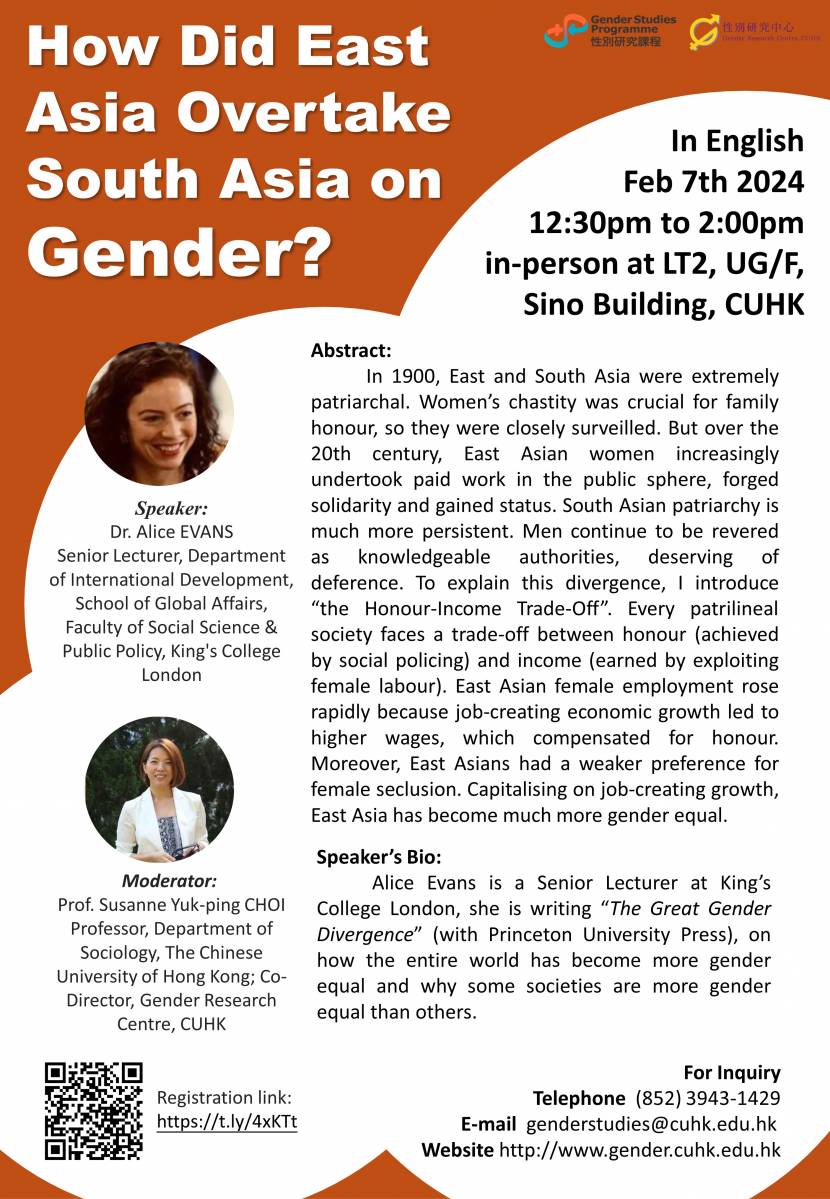


How Did East Asia Overtake South Asia on Gender?
Speaker: Dr. Alice EVANS (Senior Lecturer, Department of International Development, School of Global Affairs, Faculty of Social Science & Public Policy, King's College London)
Moderator: Prof. Susanne Yuk-ping CHOI (Professor, Department of Sociology, The Chinese University of Hong Kong; Co-Director, Gender Research Centre, CUHK)
Abstract:
In 1900, East and South Asia were
extremely patriarchal. Women’s chastity was crucial for family honour, so they
were closely surveilled. But over the 20th century, East Asian women
increasingly undertook paid work in the public sphere, forged solidarity and
gained status. South Asian patriarchy is much more persistent. Men continue to
be revered as knowledgeable authorities, deserving of deference. To explain
this divergence, I introduce “the Honour-Income Trade-Off”. Every patrilineal
society faces a trade-off between honour (achieved by social policing) and
income (earned by exploiting female labour). East Asian female employment rose
rapidly because job-creating economic growth led to higher wages, which
compensated for honour. Moreover, East Asians had a weaker preference for
female seclusion. Capitalising on job-creating growth, East Asia has become
much more gender equal.
Bio:
Alice Evans is a Senior Lecturer at King’s College London, she is writing “The Great Gender Divergence” (with Princeton University Press), on how the entire world has become more gender equal and why some societies are more gender equal than others.

